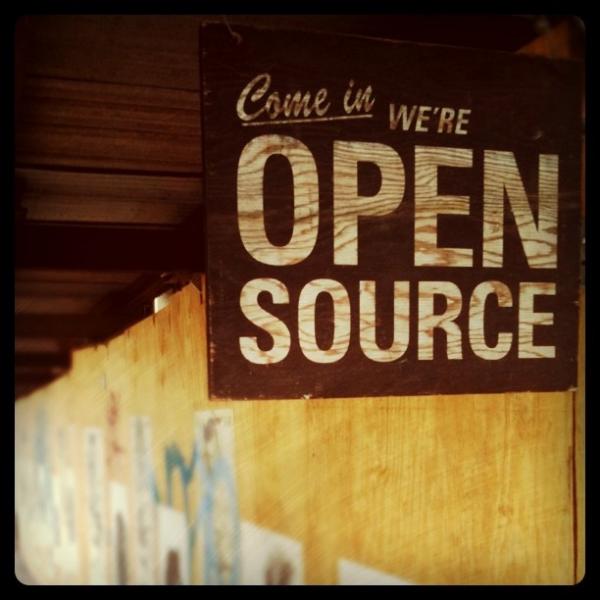This blog post is more than five years old. It may contain outdated information or refer to products that are no longer available.
A well-designed, up-to-date website is critical for a library of any size. Your patrons rely on your website for basic information about your library, such as directions to a branch or upcoming events. They also may go to your website hoping to search an online public access catalog (OPAC), download an e-book, or browse an online exhibit. A content management system, or CMS, can help you provide these services and manage them effectively, whether you have a volunteer managing your site or an entire department doing so.

A CMS is essentially a software package that lets you create and edit website content — including text, pictures, menus, and more — without having to know how to write code.
There are a lot of CMS platforms available, but some are better suited for library needs than others. Which one you choose will depend not just on your size, budget, and level of technical sophistication, but also on what kind of content you put on your website. Idealware talked to several web-savvy library professionals to find out more and condensed their advice below.
User-Friendly Systems for Modest Needs
For very small libraries with only one or two professional staff members, it probably doesn't make sense to spend a lot of money on a sophisticated CMS. A tool for simple sites that uses a WYSIWYG (What You See Is What You Get) interface and drag-and-drop design features can help you build a site with a few pages in only a couple of hours.

However, you'll need to look elsewhere if your library needs the ability to customize its website's design in detail. These systems mostly rely on pre-designed templates that limit flexibility in creating site structure, meaning that if you want to include an OPAC, access to other databases, or other electronic resources, you'll likely have to include a hyperlink that redirects users to another site.
Low-complexity options include Weebly, Wix, and Squarespace. These tools all offer free or very inexpensive versions that include ads as a concession to their low cost. They also provide a URL, or web address, rather than allowing you to use your own (for example, www.yourlibrary.weebly.com), though you can register your own domain for an extra fee. The features included in the more robust paid versions are likely to be worth the cost for most libraries. Those versions range from $50 to $300 per year.
Open Source for More Flexibility
 Bigger libraries with staff or consultants dedicated to their sites' design and maintenance will need a CMS that allows for more architectural complexity and design flexibility. A few experts we interviewed mentioned the library sector's commitment to open-source CMS platforms to meet these needs, in line with its general support for the freedom of information. Open-source software source code is available to anyone who wants to customize it. The software is often overseen by a community of developers or a nonprofit rather than a for-profit company. It's free to download and use, but installing and implementing it — and finding support for problems — may require working with a consultant with technical skills and familiarity with the system.
Bigger libraries with staff or consultants dedicated to their sites' design and maintenance will need a CMS that allows for more architectural complexity and design flexibility. A few experts we interviewed mentioned the library sector's commitment to open-source CMS platforms to meet these needs, in line with its general support for the freedom of information. Open-source software source code is available to anyone who wants to customize it. The software is often overseen by a community of developers or a nonprofit rather than a for-profit company. It's free to download and use, but installing and implementing it — and finding support for problems — may require working with a consultant with technical skills and familiarity with the system.
WordPress.org is an open-source version of the very popular WordPress platform. Because it is easy to get up and running, several people recommended the tool for small and medium-sized libraries. The community of libraries using WordPress is sizable too, so it's likely you'll find a peer institution that's also using the platform and can talk through tips and tricks with its users. For the best experience using WordPress, it helps to know some HTML and CSS. For sites over a few hundred pages, WordPress may prove frustrating and limited.
Joomla! is another open-source platform gaining traction in libraries. It's known for being user-friendly, especially when you consider how well it scales to larger sites. One suburban library director mentioned that all of her city's government websites are managed with Joomla! She liked the platform's ability to handle anything from calendars to e-commerce, but complained that some of the underlying coding could get messy and lead to formatting problems.
The powerful Drupal platform offers a number of add-ons geared toward libraries, including an OPAC and integrations with popular e-book vendors. Drupal even has an online forum dedicated to the questions librarians and library IT staff face. Though it doesn't require a lot of programming knowledge to set up and operate, Drupal is complex enough to merit the help of a consulting firm to implement the system, and dedicated staff to maintain the site.
All of these platforms are free to download, but once you factor in hosting costs, staff time, and potentially the cost of a consulting firm to help you get the site up and running and troubleshoot problems over time, your website will be a significant budget item.
Library-Specific Platforms
The universe of CMS platforms includes several designed specifically for libraries. These platforms might be worth looking into for libraries whose needs are not met by a more generalized CMS, but keep in mind that you might have more difficulty finding a consultant or web host familiar with these platforms.
BiblioCMS is a CMS provided by BiblioCommons, the vendor behind the BiblioCore Software-As-a-Service OPAC popular with public libraries. For institutions already using BiblioCore, the ease of integration is a significant benefit.
LibGuides, provided by Springshare, is popular with academic libraries, and is most often used for subject guides and directories within library sites. It can also be used as the main CMS for your library's entire site, but the experts we spoke to felt that this probably wouldn't be the best solution for larger libraries. It's also not as user-friendly as some of the more widely used content management systems.
Omeka is an open-source platform that adheres to the Dublin Core metadata standards being increasingly used. The system is meant to serve as a CMS, digital asset management system, and collections management and online exhibitions system all in one. Libraries that offer a lot of online exhibitions and other public history resources might look into what it offers. Omeka draws praise for the quality of its design and its ease of use, but the experts we interviewed noted that the platform doesn't scale well to larger collections.
Major Complexity for Massive Scale
Truly large institutions with annual budgets well into the millions of dollars might find that none of the above options are sophisticated enough to meet their needs. One institution we spoke with evaluated both Joomla! and Drupal before deciding that converting its existing site into a new system while maintaining operation and re-training staff would be too difficult within the library's ambitious timeline.
Instead, it chose to go with Foundation, from Zurb, an open-source front-end framework rather than a CMS. Put simply, a framework has a lot less functionality out of the box than a CMS and requires considerable coding knowledge to build a site, but can be notably more flexible. Another popular framework it considered, Bootstrap, is also open source.
Another even larger institution chose the enterprise level Nuxeo CMS — yet another open-source platform — for its major implementation effort, which cost it well into the millions of dollars. That platform's strength in digital asset management came into play in the decision. At that level, your library might also want to consider SiteCore, Magnolia CMS, or even Microsoft's SharePoint (available through TechSoup's Microsoft donation program), all of which will require an annual budget in the tens of thousands of dollars.
Go with Who You Trust
The world of library content management systems is diverse and thriving, with different models offering different features to suit most needs. We often give the advice, echoed by the experts we spoke to, that one of the best ways to choose a CMS is to simply go with the platform with which your existing hosting or consulting firm already has expertise — or to choose a consultant or consulting firm you're comfortable working with and use the system with which they're most familiar. (If you don't work with a firm currently, ask peer libraries for recommendations.) When you have a trusted partner helping your library, the process of designing and troubleshooting a website can go much more smoothly. And choosing a CMS that's already been vetted by a firm you trust cuts down on some of the stress involved in this kind of software selection.
For More Information
- The Comparative Guide to WordPress in Libraries: A LITA Guide
- "Open Source Systems Power Library Websites," OCLC WebJunction
- Drupal Resources for Libraries
Thanks to the following library professionals who provided their expertise for this article:
- Karen Mier, Plattsmouth Public Library
- Sherri Berger, California Digital Library
- Peggy Shaughnessy, Poudre River Public Library District
This article is courtesy of Idealware, a nonprofit that provides resources to help other nonprofits make smart decisions about the software and best practices they can use to better meet their missions. For more articles and reviews, go to www.idealware.org.
Image 1: Gates Foundation / CC BY-NC-ND
Image 2: Ivelin Radkov / Shutterstock
Image 3: Timothy Appnel / CC BY-NC-ND






